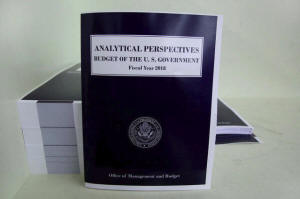|
Trump seeks to slash government spending
in budget plan
 Send a link to a friend
Send a link to a friend
 [May 23, 2017]
By Roberta Rampton [May 23, 2017]
By Roberta Rampton
WASHINGTON (Reuters) - The White House on
Tuesday will ask Republicans who control the U.S. Congress - and federal
purse strings - to slash spending on healthcare and food assistance
programs for the poor as they push ahead on plans to cut taxes and trim
the deficit.
President Donald Trump is set to propose a raft of politically sensitive
cuts in his first full budget, for the fiscal year that starts in
October, a proposal that some analysts expected would be put aside by
lawmakers as they craft their own budget and spending plans.
Trump, who is traveling overseas and will miss the unveiling of his
plan, wants lawmakers to cut $3.6 trillion in government spending over
10 years, balancing the budget by the end of the decade, according to a
preview given to reporters on Monday.
More than $800 billion would be cut from the Medicaid program for the
poor and more than $192 billion from food stamps.
Republicans are under pressure to deliver on promised tax cuts, the
cornerstone of the Trump administration's pro-business economic agenda,
which would cut the business tax rate to 15 percent from 35 percent, and
reduce the number of personal tax brackets to three from seven.

But their policy agenda has stalled as the White House grapples with the
political fallout from Trump's firing of former FBI Director James
Comey.
Comey had been leading a probe of alleged Russian meddling in the 2016
U.S. election.
Trump's biggest savings would come from cuts to the Medicaid program
made as part of a Republican healthcare bill passed by the House of
Representatives.
The bill aims to gut the Obama administration's signature 2010
Affordable Care Act, known as Obamacare, that expanded insurance
coverage and the government-run Medicaid program for the poor. But it
faces an uncertain future in the Senate, which is writing its own law.
The White House proposed changes that would require more childless
people receiving help from the Supplemental Nutrition Assistance
Program, better known as food stamps, to work.
STEEP CUTS
The plan would slash supports for farmers, impose user fees for meat
inspection and sell off half the nation's emergency oil stockpile.
Another politically fraught item is a proposal for cuts to the U.S.
Postal Service, a goal that has long eluded lawmakers and
administrations from both political parties.
[to top of second column] |

President Donald Trump's FY2018 budget is seen printed at the
Government Publishing Office in Washington, U.S. on May 19, 2017.
REUTERS/Yuri Gripas/File Photo

The first look at the plan came in a "skinny budget" released in
March - a document that received a tepid response from Congress.
Most departments would see steep cuts, particularly the State
Department and the Environmental Protection Agency.
There is some new spending. The Pentagon would get a boost, and
there would be a down payment to begin building a wall on the
southern border with Mexico, which was a central promise of Trump's
presidential campaign.
The budget includes $25 billion for a plan to give parents six weeks
of paid leave after the birth or adoption of a child, and $200
billion to encourage state and local governments to boost spending
on roads, bridges, airports and other infrastructure programs.
The plan drew immediate fire from lobby groups, including from the
Committee for a Responsible Federal Budget, which said it relied on
"rosy assumptions," gimmicks and unrealistic cuts.
"While we appreciate the administration's focus on reducing the
debt, when using more realistic assumptions, the president’s budget
does not add up," Maya MacGuineas, the group's president, said in a
statement.
Trump's plan relies on forecasts for economic growth of 3 percent a
year by the end of his first term - well beyond Congressional Budget
Office assumptions of 1.9 percent growth.
"That assumes a pessimism about America, about the economy, about
its people, about its culture, that we’re simply refusing to
accept," White House budget director Mick Mulvaney told reporters on
Monday.

(Additional reporting by Yasmeen Abutaleb, David Shepardson, Timothy
Gardner, Ginger Gibson, Jason Lange and Julia Edwards Ainsley in
Washington, and PJ Huffstutter in Chicago; Editing by Peter Cooney)
[© 2017 Thomson Reuters. All rights
reserved.]
Copyright 2017 Reuters. All rights reserved. This material may not be published,
broadcast, rewritten or redistributed. |